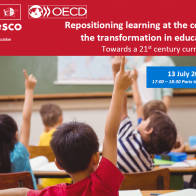You are viewing an archived web page, collected at the request of
United Nations Educational, Scientific and Cultural Organization (UNESCO) using
Archive-It. This page was captured on 06:12:02 Mar 16, 2022, and is part of the
UNESCO collection. The information on this web page may be out of date. See
All versions of this archived page.
